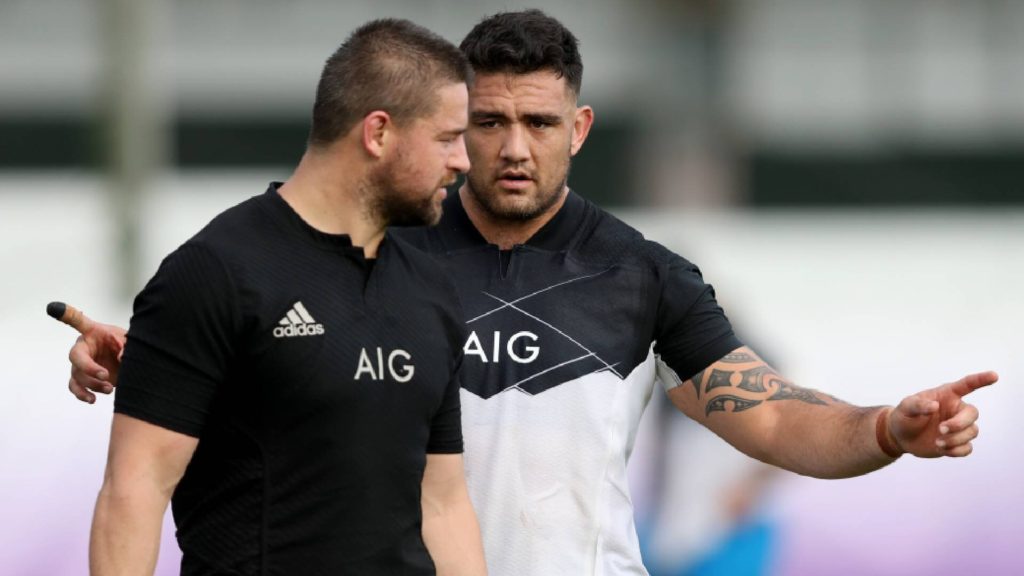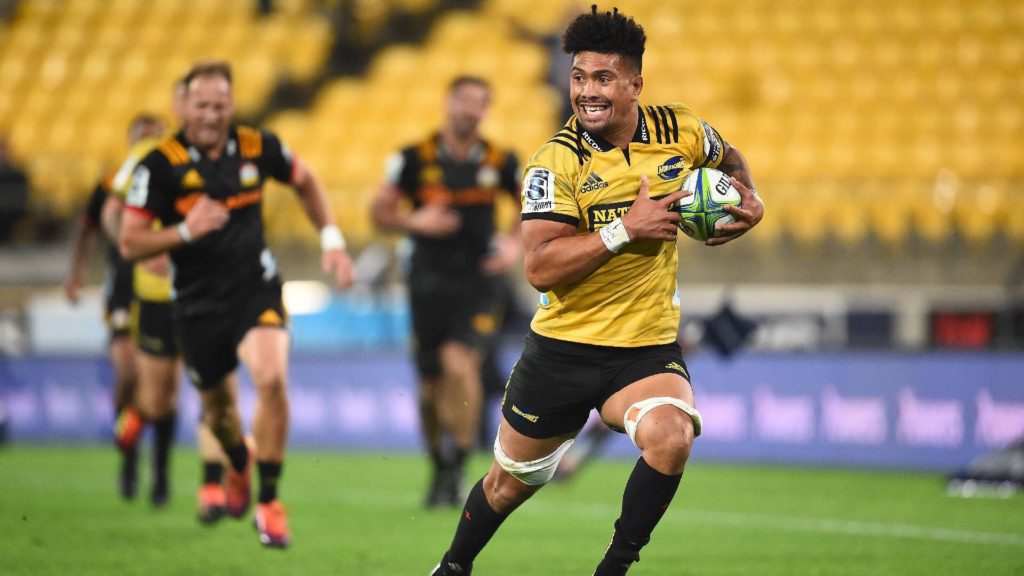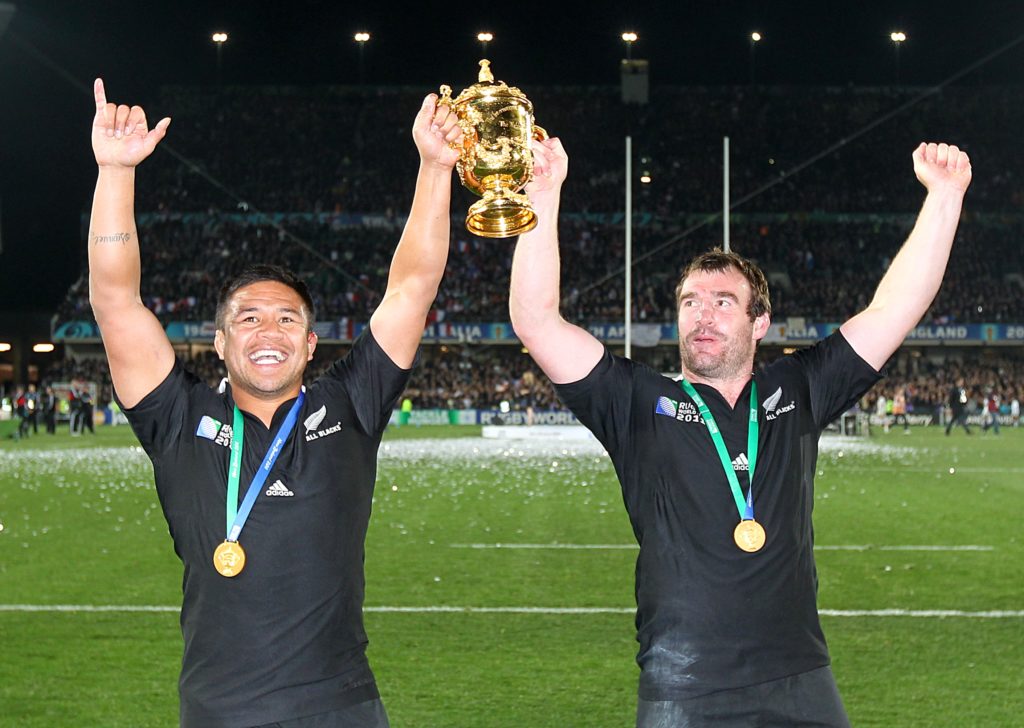There is an honesty factor that comes with Dane Coles that’s arguably worth more than the considerable talents he brings to the field, which is why New Zealand Rugby will be so ecstatic about having re-signed the veteran hooker through to the next World Cup.
At 34, Coles is still curiously fast and sprightly, defying physics almost as a 110kg hooker who can play off the tail off the lineout on the opposition throw and tail-gun with the best openside flankers in the world game.
He’s still able to dance about on his feet as if he’s a ballroom champion and pass and catch so well that it often looks like the back of his shirt is missing the number one next to the two.
It’s his work in open play, where he’s also an astute and invaluable operator at the breakdown, pinching brave and vital turnovers, that grabs the attention, but his heroics in the loose are never at the expense of his core role.
Coles has become one of the great scrummaging hookers, and one seriously bad day aside against the Crusaders in Wellington this year, he’s a supremely good lineout exponent after working tirelessly on his mental ability earlier in his career to learn how to flush bad thoughts and focus on the next task.
Whether he’s the best or second best hooker in the country behind Codie Taylor is a story that will fixate the daily media but it is in actual fact a moot debate.

The two of them have been working in tandem for the last few years – intermittingly swapping their roles as starter and finisher as form, fitness and opposition dictate.
That two-punch system will continue for the foreseeable future – maybe all the way to 2023 if Coles can stay injury free and keep playing at the level he is.
But what is perhaps not fully appreciated about Coles is that he doesn’t necessarily have to be racking up big minutes over the next two years to justify the decision to re-sign him.
His value extends way beyond the field and that’s why it’s unlikely he’ll be usurped from the national squad by any aspiring youngster before the next World Cup.
The essence of Coles is his competitive spirit – his dogged, defiant refusal to accept standards that are below expectation and his willingness to hold others to account.
After Super Rugby [last year] I was at one of those stages in my life, I wasn’t really enjoying it, like any workplace when you’ve been doing it a few years.
Dane Coles contemplated calling time on his professional career last year
Coles doesn’t do anything half-cocked. It’s not in his DNA. He’s an all-in personality if ever there was one and having suggested earlier this year that 2021 might be his last, his decision to re-sign for another two years was made only after he became certain his mind and body were willing and able to give everything he has.
“After Super Rugby [last year] I was at one of those stages in my life, I wasn’t really enjoying it, like any workplace when you’ve been doing it a few years,” he says.
“Then getting back into the All Blacks environment, it gave me a real freshness and made me realise how much I love the game.
“Then coming back here [Hurricanes] and the captaincy, giving it to Ardie has been a good refresher and weight off my shoulders, but still able to contribute and lead and play as well. I did think about it [retirement], but I’m glad I stuck around and NZ Rugby and the Canes gave me a chance to stay in New Zealand.”
The fire still burns, rages, within Coles and that’s what the All Blacks want and need as the best rugby teams always have strong enforcers within – big characters who look their peers in the eye and tell them when they are not giving enough.

Coles is that character for the All Blacks, a role he has fallen into partly because he has a natural inclination to speak his mind and partly because he appreciated the importance of mentoring programmes, having experienced a tough apprenticeship of his own with both the Hurricanes and All Blacks.
When Coles first made it into Super Rugby, he sat on the bench behind Andrew Hore for what felt to him like a lifetime. He’d impress in his cameo appearances, done all that was asked and yet every week it would be the same – Hore to start and Coles on the bench.
When that changed in 2012 after Hore shifted to the Highlanders, Coles came into the All Blacks and found much the same situation he had known at the Hurricanes.
The veteran duo of Keven Mealamu and Hore were ahead of him but had been asked by All Blacks coach Steve Hansen to pass on all their knowledge and help the then 25-year-old Coles fulfil his potential and ultimately become the first-choice hooker.
It was a tough but brilliant way for Coles to learn the craft of test rugby. There he was competing against two treasured All Blacks veterans who had almost 200 caps between them, being smashed up and growled at during training, only to then have the warmest and most insightful debriefs afterwards. Every day he grew in stature, resilience and understanding.
Most of the kids are pretty good but you get some who have come out of First XV which is televised and they are big rock stars. When they come into the professional environment they want it straight away.
Coles on the new generation of talent
What Coles learned from Mealamu in particular, is that the process of getting better requires honesty, integrity and bravery – the last quality being critical as it takes courage to confront someone and demand more from them.
Coles has no issues with confrontation and alluded to it in 2019 when he spoke about the changing culture within the All Blacks to embrace and help new players: to make life easier for Generation Z and Millennials.
“Most of the kids are pretty good but you get some who have come out of First XV which is televised and they are big rock stars,” he said.
“When they come into the professional environment they want it straight away. I had to wait three years. I played three years off the bench behind [Andrew] Hore because that is what I had to do.
“Some of these young guys are impatient and have to understand their time will come. Just put the work in and your time will come, but it is a generational thing.
“The hard conversations are sometimes what they need. A few words from an older player can help them see what is going on. But you have to encourage them too and tell them when they are playing well because things have changed and there is a lot more getting around the young fellas, having a yarn with them when they arrive.
“We are more inclusive now and it doesn’t matter if you have played one test or 100, we are treated all the same. But I still think there is a little bit of room for the old school mentality.”

That old school mentality was visible last year when Coles was injected into the starting team for the second test against the Wallabies – after coming off the bench in the first, a game where the All Blacks were passive and reactive and fortunate to draw.
Within the first minute at Eden Park, the Coles factor was obvious. The All Blacks were feisty, on the front-foot and dynamic and he made a serious statement of intent when he physically confronted Taniela Tupou after the giant Wallaby prop had played him off the ball.
It wasn’t a coincidence that the All Blacks went from sloppy and disjointed to focused, intense and accurate as a result of Coles’ arrival. That’s what he does – he gets under the bonnet of things, pokes about in the heads of his team-mates and calls them out when they are not delivering at training.
He is the team’s conscience, the man that will agitate and niggle when things aren’t good enough and that’s historically what has kept the All Blacks on this mission to get better – thorny individuals who confront inconvenient facts and lay things bare.
That’s what he does – he gets under the bonnet of things, pokes about in the heads of his team-mates and calls them out when they are not delivering at training.
There were further examples of Coles’ sharp edges when he spoke last year after the All Blacks had lost to the Wallabies in Brisbane, after another inaccurate and ill-disciplined performance.
“The hard thing to take is that we lacked intent,” said Coles. “They were really desperate to win and you could see it the way they played. Our physicality and attitude wasn’t where it needs to be.
“A lot of it is just about what’s in here [heart]. We really lacked that on Saturday and they brought a real hunger and were desperate to get the Bledisloe Cup. There’s a bit of soul-searching for the week. We need to find what it means to be an All Black.”
Coles, having won his first cap in 2012, knows precisely what it means to be an All Black and even if Taylor and Asafo Aumua come to win more of the game time in the next two years, the veteran Hurricane will still be an invaluable presence, throwing himself into everything and demanding all those around him do the same.
There are younger, higher profile players that NZR is trying to retain through to the World Cup, but Coles, the nuggety veteran from the front-row, is arguably the most important signing that the national body will make ahead of France 2023.


Comments
Join free and tell us what you really think!
Sign up for free